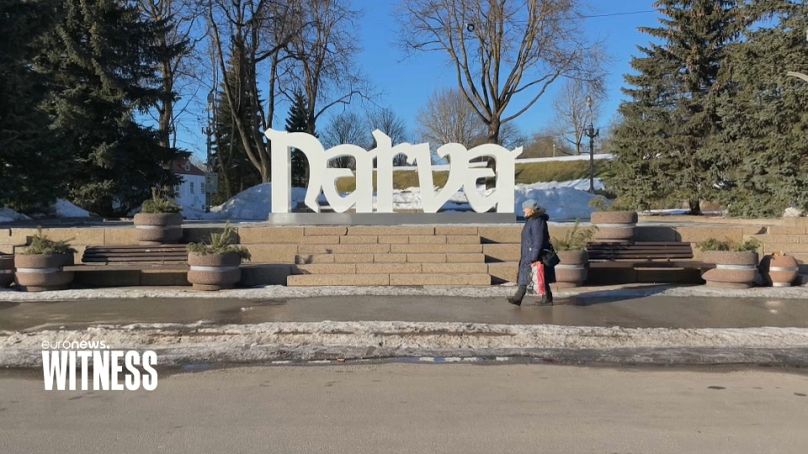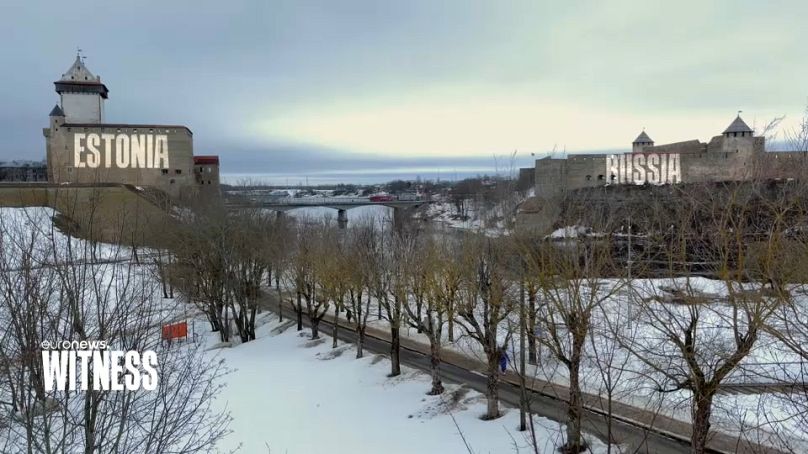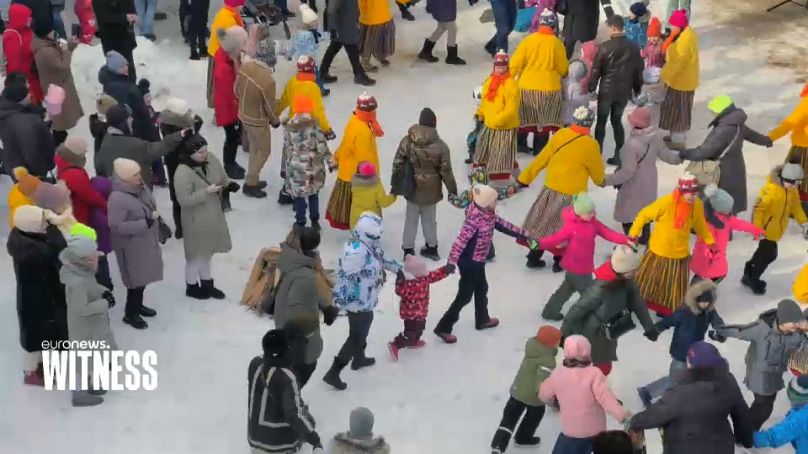A huge Russian-speaking minority lives in the Baltic States. Estonia is member of NATO – a military alliance which guarantees them security. Nevertheless, are Estonians afraid of their Russian neighbour? Mobile Journalist Hans von der Brelie went to the edge of the country to find out.
In the Baltic States lives a huge Russian-speaking minority. Are these people manipulated by the Russian leader – or are they loyal to Europe? Estonia is a member of NATO – the defence organization that guarantees the security of the country. Nevertheless, are Estonians afraid of their big neighbour Russia? To find out, our Mobile Journalist Hans von der Brelie grabbed his backpack and travelled to eastern Estonia, to the external borders of the European Union.
Well, it is one of those assignments where you never know in advance if you will get anything out of it: diving into the minds of native Russian speakers in the Far East of Estonia while Russian bombs are falling on Ukraine, trying to understand their mindsets, feeling the vibe of the people.
While Eastern Estonia is weathering freezing temperatures right now, the people’s differing opinions can lead to heated, passionate responses. I spoke to the people of Narva, a town bordering Russia.
Tamara, an elderly Russian-speaking woman with a blood-red bonnet, waiting at a bus station told me, “Putin knows what he is doing. If the Ukrainians had not bombed the Donbass region, nothing would have happened now. They brought this on themselves. The Ukrainians forced Putin to take action.”
I met another woman, Anna, who was wearing a blue hat and walking her dog, showing the town to a visiting friend from nearby Russia.
“Some people around here are, hard to say, somewhat brainwashed from the Russian propaganda that we see on TV.”
That is why the European Union decided to unplug Russian TV propaganda channels. When talking to the people of Narva, quite a large number of them did not agree with this decision, in particular many elderly native Russian speakers with limited knowledge of the Estonian language.
It is not the first time that I have worked in eastern Estonia. In 20 years of digging for stories for Euronews, I had a few good reasons to cover this part of Europe repeatedly: Estonia joining the EU. Estonia joining the Eurozone. Estonia joining NATO. Estonia discussing the integration of native Russian speakers … the list is never-ending. There is always another story to tell.
Recently Estonia has been in a prolonged state of unease since Putin’s first move against Ukraine in 2014. Now, 8 years later, we are back for round two … and once again the world asks the same old question: Are the Baltics under threat too? Through State-controlled TV stations, Russia has tried, for years, to influence people living here.
Over 70 per cent of people in the eastern region of Estonia are native Russian speakers. In Narva, the Estonian city bordering Russia, it is over 90 per cent. Are they loyal to Estonia? Yes or no? In the streets of the town, I opt for a provocative, straightforward question: Where do you want to live? Where does Narva belong? In Estonia or Russia?
I was surprised that people did speak up, easily; I have a feeling that those men and women urgently wanted and needed to share their points of view.
Olga, a short woman with thick glasses, native Russian speaker and local said,
“I think it’s better in Estonia. Because it’s a small country, so the State pays more attention to the people and therefore there is a better social protection system.”
Vladislav, a Russian speaking tall, young man with a fancy beard and glasses, with little time to talk added,
“We are in Estonia. Everything is good. Why should we change anything? Narva should stay inside the country, on the Estonian territory.”
I then met Natalia who was walking with her daughter and is a Russian-speaking resident, when I asked her, she exclaimed,
“How could we be a member of the Russian Federation? Of course, we are in Estonia! Why? Because my children and myself are citizens of Estonia.”
At other times, my questions seemed to surprise or amuse, like Gergana, a young Russian-speaking lady Who smiled as she replied,
“Narva is a Russian speaking city and there are Russian people living here, even if we belong to Estonia. We are Estonians living in an Estonian city.”
Roman, another native Russian speaker and local, joins me after observing that an elderly woman refused to answer. He uses a metaphor to illustrate his feelings.
During the Soviet occupation, Stalin deported many Estonians to Siberia. Russians came in return. It was a time of forced russification of the region. However, since Estonia’s “singing revolution”, EU membership, many things have changed: united in diversity, that is the goal.
Today, some two-thirds of native Russian speakers hold an Estonian passport. Around six per cent of the Estonian population have a “grey passport.” After the fall of the Soviet Union in the early nineties, when Estonia declared independence in 1991, these people asked to have neither Russian nor Estonian identity papers. The grey passports also called an “Estonian Alien’s Passport” are travel documents given to people who are stateless or of undefined citizenship and who reside in Estonia. Today the numbers are decreasing as time goes on and the Soviet Era fades further in history and memory.
Is it easy to be part of Estonian society as a native Russian speaker? Anna told me "yes". After studying law in Moscow for seven years, she returned to her hometown of Narva. While Anna learned Estonian and is now bilingual, her husband speaks only Russian.
Not everyone in Anna's environment thinks like her - which is why politics is taboo in her family.
“We've made an agreement in our family. Sure, we are open-minded, but we never talk about war or politics. Honestly, I myself do not see any difference between Russians and Estonians, really. We are part of the same society. We belong together. What difference does it make whether I was born in Narva or Tallinn? I speak Russian, I speak Estonian, I have Russian friends, and I have Estonian friends. There is absolutely no discrimination. “
Russian propaganda tried to put forward a narrative that native Russian speakers living in Estonia are victims - but Anna, who works for the City Public Affairs Department and has an Estonian passport, feels equal: an Estonian like everyone else. For her, the problem today lies elsewhere. Empty shelves in the supermarkets. Russian products discontinued. In addition, people are panic buying.
All because of Putin’s war in Ukraine.













